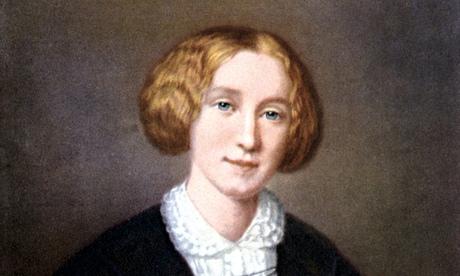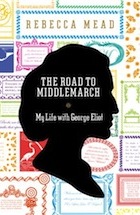Rebecca Mead's stylish and personal meditation on George Eliot's masterpiece makes Middlemarchers of us all

'Generous wisdom' … George Eliot. Photograph: Rex Features
The last few years have seen a surge in non-fiction books about the origins and afterlives of classic fiction, and, as with the writing of lives, so the writing of the lives of books can be literary, historical, biographical, autobiographical, essayistic or some combination of them all. Michael Gorra's 2012 Portrait of a Novel probably leads this new field, a magisterial blend of scholarship, literary criticism, biography, social history and a bit of travelogue, as Gorra retraces Henry James's writing of The Portrait of a Lady.
This year promises a bonanza of similar projects, with the emphasis on making classic literature "accessible" to modern audiences, including Reading Dante, by Prue Shaw; Give War and Peace A Chance, by Tolstoy scholar Andrew D Kaufman; and Kevin Birmingham's The Most Dangerous Book: The Battle for James Joyce's Ulysses, which is due out this summer. There are several others in the works, including one by New Yorker contributor Daniel Mendelsohn, about reading The Odyssey with his ailing father, while I recently published a book on the genesis of The Great Gatsby, so I have something of a stake in this game.
 And now comes a stylish meditation called The Road to Middlemarch, a personal reflection on Eliot's masterpiece and the meanings it's had for Rebecca Mead, a British journalist living in New York City. The book began as an essay for the New Yorker, where Mead is a staff writer, and that style inflects the finished version: it is elegant, thoughtful and readable, written with clarity and a gentle sympathy that seems a reflection of Eliot's own generous wisdom, while veering away from some of Eliot's more astringent asides.
And now comes a stylish meditation called The Road to Middlemarch, a personal reflection on Eliot's masterpiece and the meanings it's had for Rebecca Mead, a British journalist living in New York City. The book began as an essay for the New Yorker, where Mead is a staff writer, and that style inflects the finished version: it is elegant, thoughtful and readable, written with clarity and a gentle sympathy that seems a reflection of Eliot's own generous wisdom, while veering away from some of Eliot's more astringent asides.
Mead is determined to make the novel that Virginia Woolf famously described as "one of the few English novels written for grown-up people" accessible again, to a culture whose definition of maturity has altered over the 150 years since Middlemarch was published. Eliot subtitled her book "A Study of Provincial Life", and its interest in ordinary lives is paralleled by Mead's interest in ordinary readers, the novel's wide perspective that, Mead contends, "makes Middlemarchers of us all".
More
This year promises a bonanza of similar projects, with the emphasis on making classic literature "accessible" to modern audiences, including Reading Dante, by Prue Shaw; Give War and Peace A Chance, by Tolstoy scholar Andrew D Kaufman; and Kevin Birmingham's The Most Dangerous Book: The Battle for James Joyce's Ulysses, which is due out this summer. There are several others in the works, including one by New Yorker contributor Daniel Mendelsohn, about reading The Odyssey with his ailing father, while I recently published a book on the genesis of The Great Gatsby, so I have something of a stake in this game.
 And now comes a stylish meditation called The Road to Middlemarch, a personal reflection on Eliot's masterpiece and the meanings it's had for Rebecca Mead, a British journalist living in New York City. The book began as an essay for the New Yorker, where Mead is a staff writer, and that style inflects the finished version: it is elegant, thoughtful and readable, written with clarity and a gentle sympathy that seems a reflection of Eliot's own generous wisdom, while veering away from some of Eliot's more astringent asides.
And now comes a stylish meditation called The Road to Middlemarch, a personal reflection on Eliot's masterpiece and the meanings it's had for Rebecca Mead, a British journalist living in New York City. The book began as an essay for the New Yorker, where Mead is a staff writer, and that style inflects the finished version: it is elegant, thoughtful and readable, written with clarity and a gentle sympathy that seems a reflection of Eliot's own generous wisdom, while veering away from some of Eliot's more astringent asides. Mead is determined to make the novel that Virginia Woolf famously described as "one of the few English novels written for grown-up people" accessible again, to a culture whose definition of maturity has altered over the 150 years since Middlemarch was published. Eliot subtitled her book "A Study of Provincial Life", and its interest in ordinary lives is paralleled by Mead's interest in ordinary readers, the novel's wide perspective that, Mead contends, "makes Middlemarchers of us all".
More

No comments:
Post a Comment